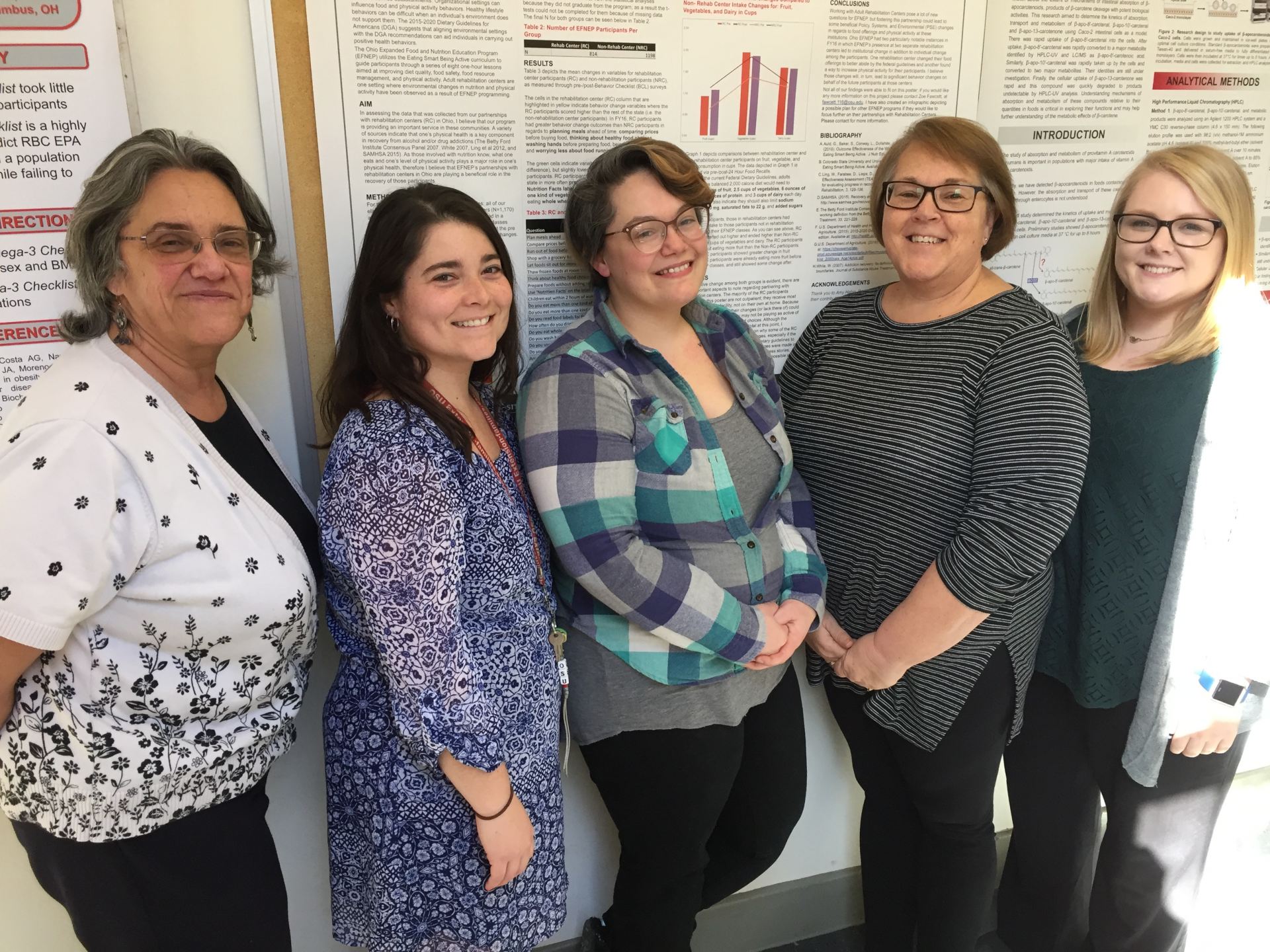
Maria Carmen Lambea, Amanda Rysz, Zoe Fawcett, Bobbilyn Kasson and Sarah Chain help organize and run the EFNEP program at Ohio State.
Credit: Lydia Gingerich | Lantern Reporter
When Heather told her teacher she was going to complete the two-month-long nutrition course, the mentor was skeptical — Heather had tried and failed two times before. But now she had motivation: She wanted visitation rights to her children.
Two months later, Robin Adams awarded Heather with a certificate for completing the Expanded Food and Nutrition Education Program from Ohio State. After showing the certificate to her family court judge in hopes of getting temporary visitation rights, Heather was granted full custody of her children.
EFNEP, a nationwide and government-funded nutrition program, provides free classes for low-income adults and children, covering topics such as portion size, meal planning and staying physically active.
“It really allows the participant to learn the different food groups and learn about food safety for the different [participants],” said Maria Carmen Lambea, EFNEP’s director for Ohio.
She said every class is an interactive experience so students “can engage, discuss, ask questions and actually apply the skills that they learn there.”
EFNEP trains paraprofessionals (those without a college degree) like Adams over 14 weeks for the purpose of disbursing that knowledge into their own counties to address community issues in a classroom setting.

EFNEP provides free classes for low-income adults and children, covering topics such as portion size, meal planning and staying physically active. Credit: Lydia Gingerich | Lantern reporter
At the end of each lesson, students are given a tool to help them practice skills they have learned. For example, students receive a meat thermometer the day they learn about safe minimum cooking temperatures.
“We are not just talking to you and telling you that you need to make sure your stuff is food safe, but we actually give you the tools to do the things that you are being asked to do,” said Zoe Fawcett, an EFNEP research associate.
Many Ohio State students are unable to work with EFNEP because most courses take place in other counties. But Lambea said because there are opportunities for students to help out during the summer, they should at least know of the program.
“Maybe they are from Ohio and have family that could benefit from the program, too,” Fawcett said.
Last year, the EFNEP program had almost 4,000 adult participants in 20 counties across Ohio. The program is also taught in schools with at least 50 percent of the students on free or reduced lunch plans. About 9,000 young people went through the program in the state last year.
Adams said she loves imparting valuable information to those who need it most.
“As a society, I think we should be engaging with those people who genuinely need help. I think we should be sharing whatever information we can with those who are in need,” she said.
The Engaged Scholars logo accompanies stories that feature and examine research and teaching partnerships formed between The Ohio State University and the community (local, state, national and global) for the mutually beneficial exchange of knowledge and resources. These stories spring from a partnership with OSU’s Office of Outreach and Engagement. The Lantern retains sole editorial control over the selection, writing and editing of these stories.



